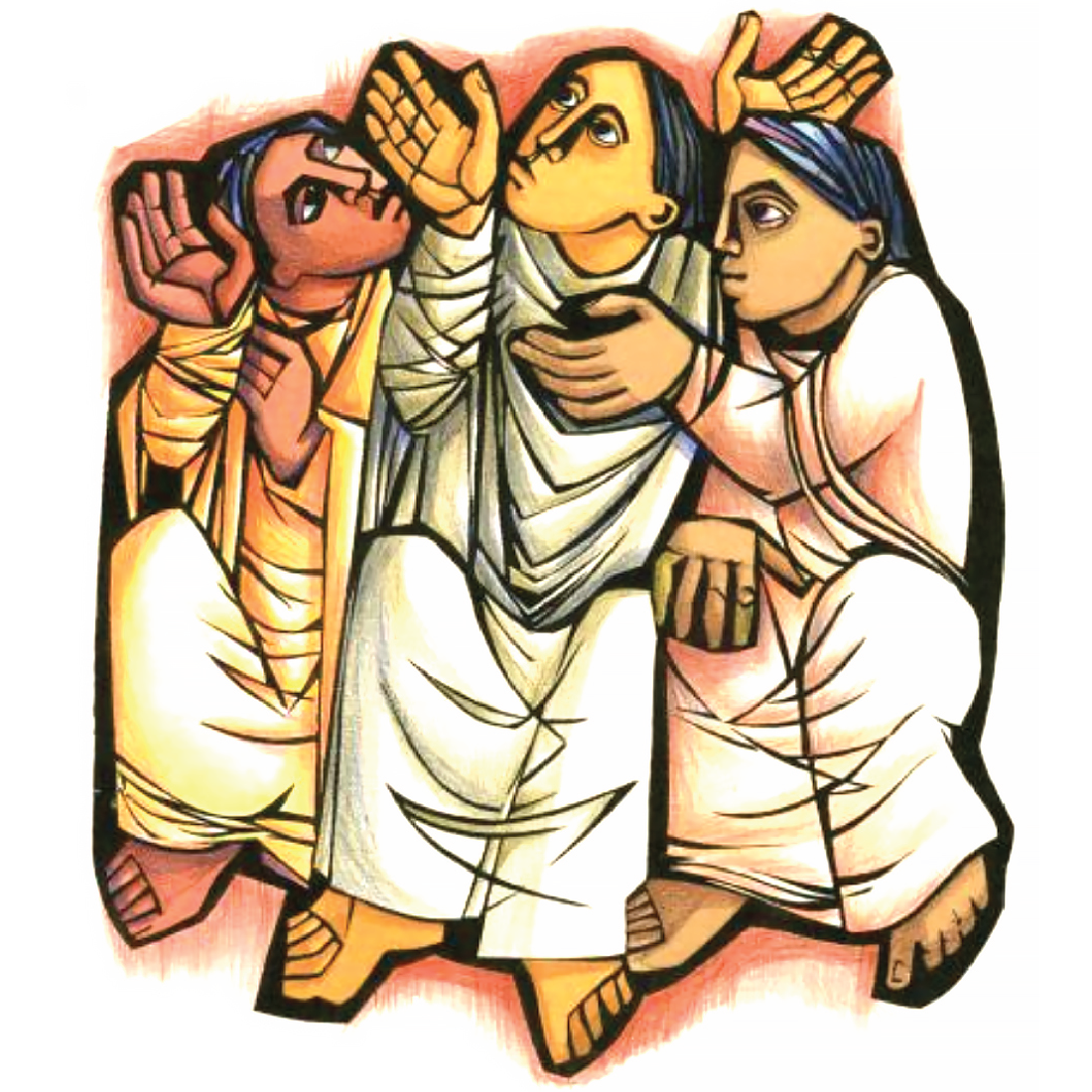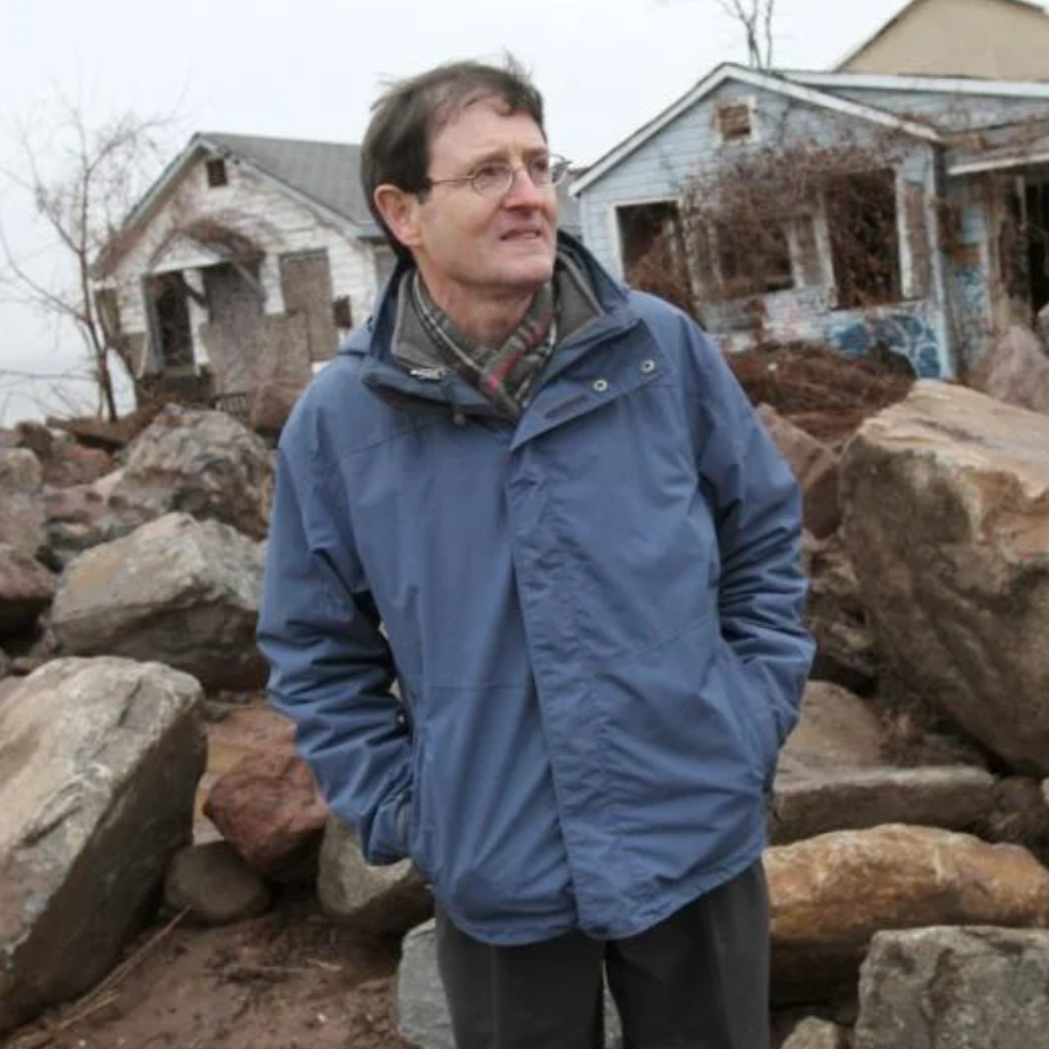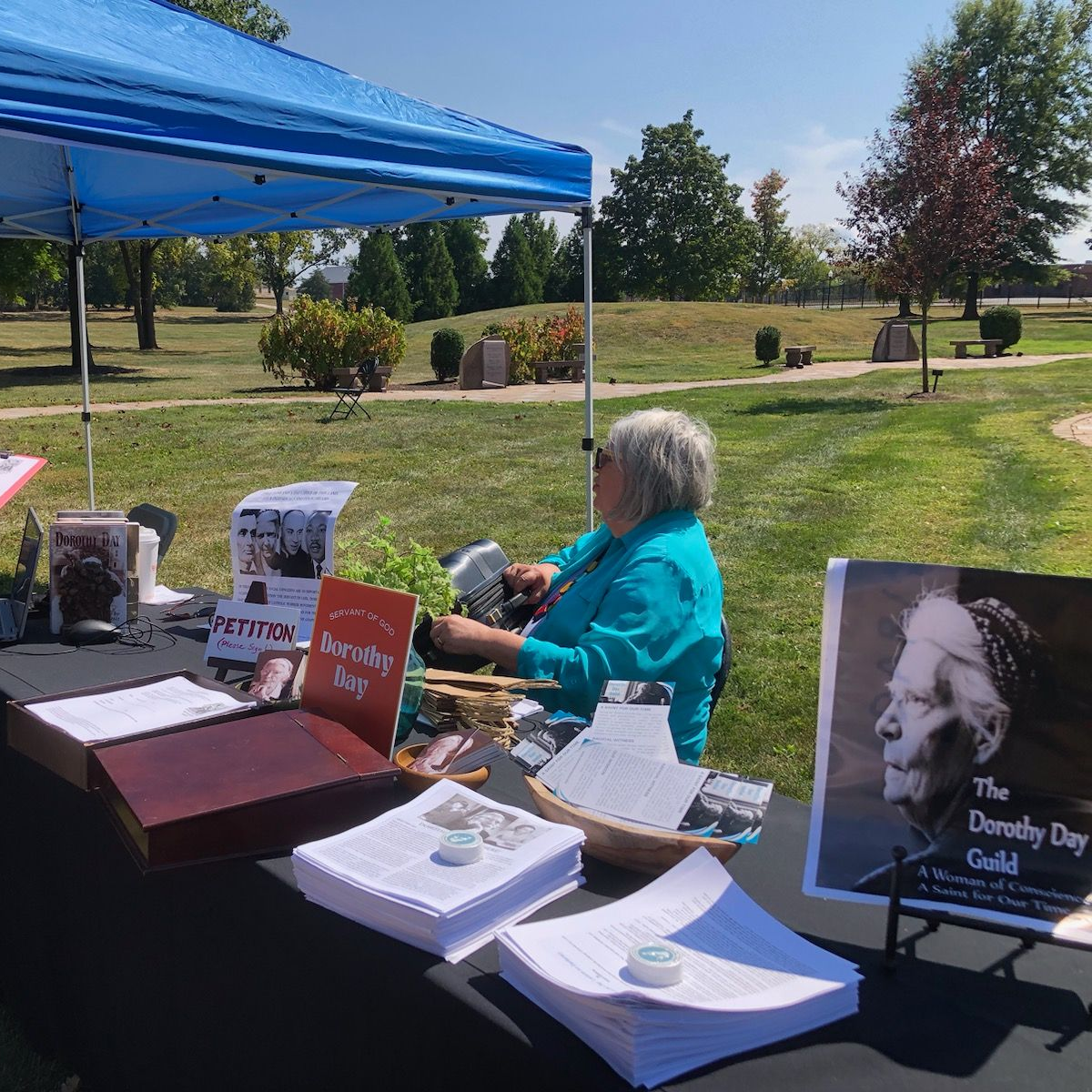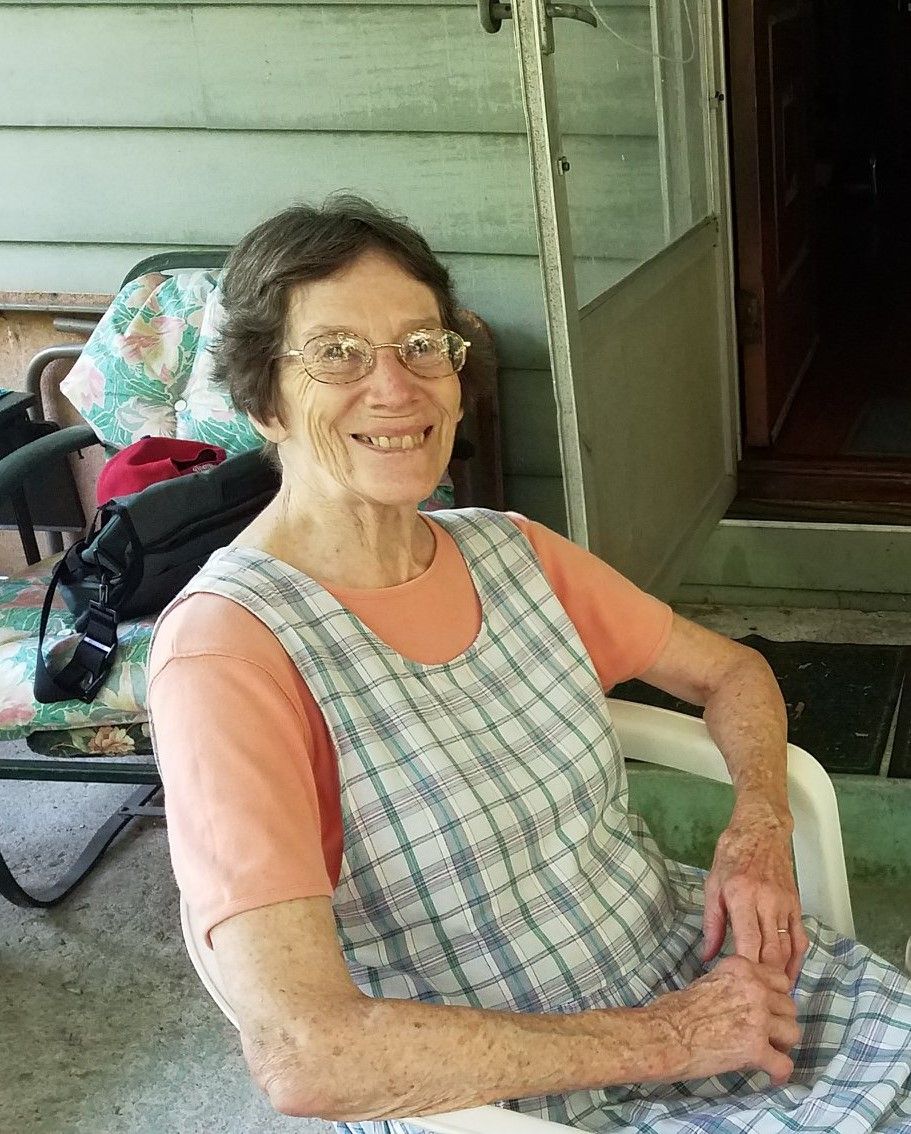(Of course, those who have studied Dorothy closely will know that the quote is unreliable; see Brian Terrell’s piece in the April 16, 2012 National Catholic Reporter on the story behind the distortion: “Dorothy Day’s ‘filthy, rotten system’ likely wasn’t hers at all.” It’s a powerful saying, but it’s not on my Facebook page anymore.
For almost my entire adult life, I have worked in faith-based advocacy, mostly in Catholic circles, fighting this filthy, rotten system that we live in. It is almost impossible to do this work without realizing the effect of Dorothy Day on our mission and our message; she has permeated my life profoundly and irrevocably—images of her in photographs and as an icon are displayed in the Pax Christi USA office where I work. She was a supporter and mentor when Pax Christi USA formed fifty years ago and gave the keynote address at the first national assembly in the early 1970s. But if I had stayed put in the place where I was born and raised, it is possible I would never have heard of her at all.
“It is almost impossible to do this work without realizing the effect of Dorothy Day on our mission and our message.”
My large, Southern, Catholic family embraced our faith as an integral part of our identity. Service was understood to be an important component of life: one of my great-grandmothers spent decades as an advocate for incarcerated people, organizing Catholic Masses at the state penitentiary, teaching prisoners how to knit, and providing housing and job assistance after release. (My sister still has several of our great-grandmother’s scrapbooks from the early decades of the twentieth century, filled with birthday and Christmas cards from the men who Granny ministered to; I remember as a child realizing that almost all of the cards were signed with their inmate number, not their name.)
Other than some charitable activities, our family and wider church community were fairly conservative. My teachers from kindergarten through high school were Dominican sisters, members of a semi-cloistered community who wear full habits and receive new names at their final vows ceremony.
The women who taught me all those years were good people: they strongly believed in education, they were faith-filled, devoted to their pupils, and they instilled in their students a delight for beauty, music, and the arts. We were taught to honor the Blessed Mother, to recite the rosary, the Angelus, and the Regina Caeli. (A few years ago, a group of friends decided to say the rosary together, something we had never done before. Who was the only one who knew the Hail Holy Queen? Me. Thank you, Dominican sisters.)
However, I have no recollection from my elementary or high school years of any analysis of the power system in this country, either economic or political. We were taught to be charitable, with the strong assumption (based in reality) that we were of the privileged class. We were expected to pray for and pity those who have less, but little to no discussion was held about how fortunate lifestyles connect to lives of desperation and poverty.
My choice for college was Loyola University in New Orleans, which is where I first heard about Catholic social teaching and was taught to critically analyze the economic and political structure of the country. I attended my first political demonstration while a student there: a group from campus ministry drove to Baton Rouge to protest Louisiana’s use of the death penalty. (My father’s response when I told him: “Why?”) I can’t say for sure if it was at Loyola when I first heard of Dorothy Day, but it’s quite possible.
“No discussion was held about how fortunate lifestyles connect to lives of desperation and poverty.”
One significant experience during my college years was participating in the school newspaper. Luckily the staff was small enough that they welcomed a totally clueless and pretty much skills-free freshman. Those of us on the staff were fortunate enough to be mentored by Fr. Ray Schroth, a Jesuit priest who was a serious journalist. He guided us with a deep commitment to our development as thoughtful, clear writers. His reputation as a professor was often negative; many undergraduates abandoned his journalism and writing classes due to his considerably high academic expectations. But for those of us who got to know him while we were members of the newspaper staff, he was a generous and patient teacher, dedicated to ensuring that we respected the critical role of journalists in a free and just society, a role that Dorothy also understood.
Loyola reinforced my family’s belief that service is an essential part of Catholic life, and since I was disinclined to settle right away into a job that I might hold for forty or so years, I joined the Jesuit Volunteer Corps (J.V.C.) and spent a year in Anchorage, Alaska living in community with eight other people.
My job was at a daycare center which provided services for children with disabilities; my housemates’ job sites ranged from a soup kitchen, a women’s shelter, a rape crisis center, a home for “thrown-away” teenage girls, an AIDS support program, and Covenant House, the program for runaway teenagers. The children I worked with were marginalized in a particular way, but my housemates were meeting and working with folks who were enduring some of the harshest experiences people can face: abuse, addiction, abandonment, hopelessness, illness, and destitution. To have a small understanding of these pains was an intense experience for all of us.
When my J.V.C stint ended, I moved to Washington, D.C., where I still live, and spent a year as an intern with Sojourners magazine, living in community with the five other interns. Though I had always lived in cities, this was my first experience residing in a high population density neighborhood, and much like my time in J.V.C, it was revelatory and humbling.
It was in Washington D.C. that I first met Catholic Workers and realized the depth and breadth of the network of faith-based activists who live in community in voluntary poverty and who practice on-going resistance to the dominant paradigm. Attending monthly Clarifications of Thought at the Dorothy Day House in D.C.’s Petworth neighborhood became a regular occurrence, and eventually I participated in occasional civil disobedience actions.
Around this same time, Pax Christi became part of my life. Initially I joined a Pax Christi prayer group for young adults, which allowed for space to talk about the scriptures and other readings and to discuss public witness activities in Washington D.C. The focus on promoting peace and resisting war was and continues to be important to me, stemming from my years listening to my father’s stories about his experience in Europe during World War II. I don’t think my father ever allowed himself to think that it was wrong to serve in the military, but he certainly did it with great hesitation and would have never gone had he not been drafted. He also made it clear that he hated his years in the army and in the war; it was, he said, the worst experience of his life.
I have often wondered what he would have thought of Dorothy’s anti-conscription efforts during World War II. We never had the chance to discuss it. What difference might it have made, if her attempt had succeeded and if conscientious objection as a Catholic had been an option for him? Or for my brother who served (and survived with a Purple Heart) in Vietnam?
One of my most moving experiences with Pax Christi USA was the national assembly in 1997—Pax Christi USA’s twenty-fifth anniversary—held at Catholic University here in Washington, D.C. Mass was held in the crypt chapel of the Basilica of the National Shrine, the spot where Dorothy prayed in 1932, asking for guidance. Her presence was palpable at that Mass in 1997.
Seven years ago, I joined Pax Christi International to work with the Catholic Nonviolence Initiative, a project which began after the April 2016 nonviolence and just peace conference held in Rome. This had been a ground-breaking gathering, bringing together Catholic theologians and peace practitioners from around the world, many from areas of terrible conflict, to discuss the Church’s role in promoting true peace and nonviolence. Priests, sisters, and lay people from the Global South said that the just war theory was irrelevant to them: How could anyone say a war is just? They repeated that it was possible to talk with enemies—“They are our neighbors,” said one sister from Iraq about ISIL.
‘How could anyone say a war is just?’
What would Dorothy have to say about that conference in 2016, or the subsequent ones in 2019 and 2022, these gatherings that have urged the Church to take a stronger position on nonviolence? I wish we could have invited her to participate—what a gift her moral clarity would have been to the conversation. Despite her fidelity and personal piety, she realized, as Robert Ellsberg wrote in 1997, “that the Church [must] be held accountable to its ideals and founding mission. ‘I loved the Church for Christ made visible. Not for itself, because it was so often a scandal to me. Romano Guardini said the Church is the Cross on which Christ was crucified; one could not separate Christ from His Cross, and one must live in a state of permanent dissatisfaction with the Church.’”
Soon after the first nonviolence and just peace conference in Rome in 2016, Daniel Berrigan died. It felt significant—he had been aware of the gathering and had prayed for us, and once it had finished and we had published the “Appeal to the Catholic Church to recommit to Gospel nonviolence,” he let go.
It was an easy decision to travel to New York City for his funeral in early May. My travel companions—Marie Dennis with Pax Christi and Rose Berger with Sojourners—and I headed to Maryhouse, the Catholic Worker house which was the starting point for the funeral procession.
That rainy morning, we stepped inside a crowded Maryhouse, which had been Dorothy’s final home, and were able to visit Dorothy’s room, a deeply moving experience. The entire day was a gift—seeing Dorothy’s room, walking in the downpour through Manhattan with hundreds of others singing and praying, and then celebrating the Eucharist at St. Francis Xavier with a sanctuary full of Dan’s fellow Jesuits. I was buoyed by this incredible expression of love, friendship and companionship on this beautiful journey together. “What else do we all want, each one of us, except to love and be loved, in our families, in our work, in all our relationships?” Dorothy once said. “God is love. Love casts out fear. Even the most ardent revolutionist, seeking to change the world, to overturn the tables of the money changers, is trying to make a world where it is easier for people to love, to stand in that relationship to each other.” (After the ceremony, I was able to meet Fr. Schroth, my journalism professor from Loyola, for lunch; he was also a New York Jesuit and had been one of the funeral Mass concelebrants.)
Despite my admiration for her, I have not lived as radically as Dorothy did. I do not live in poverty, and I do not live in community, though I do try often to offer hospitality. Her words and her actions, her expressions of faith, stay with me, challenging and stretching my thoughts. What do I need to do to make those choices? Can I get there one day?
Today, Facebook doesn’t have a box for favorite quotes, but if I had the chance to add mine, it would be the beautiful sentences that Dorothy wrote in the postscript of her autobiography, The Long Loneliness: “We cannot love God unless we love each other, and to love we must know each other. We know Him in the breaking of the bread, and we know each other in the breaking of the bread, and we are not alone any more. Heaven is a banquet and life is a banquet, too, even with a crust, where there is companionship.”








